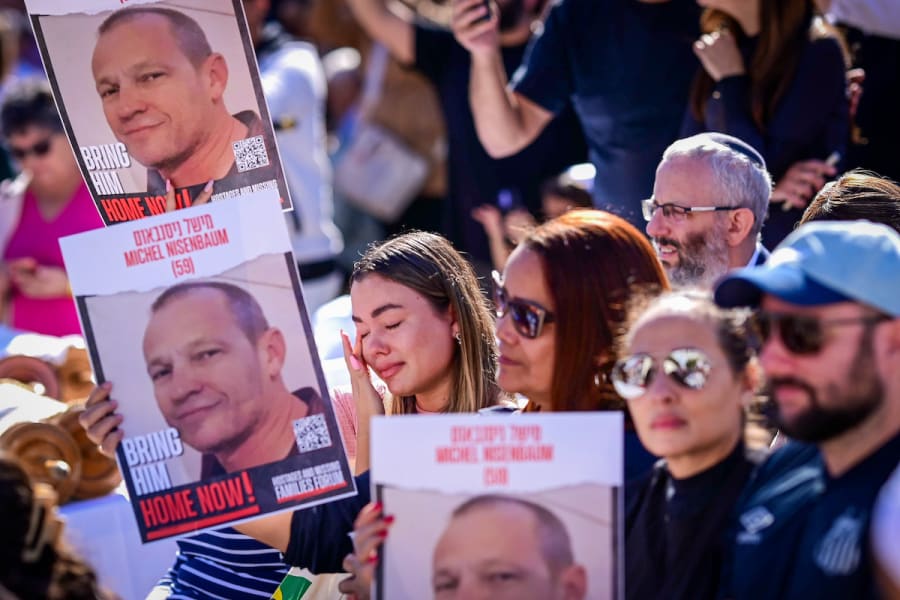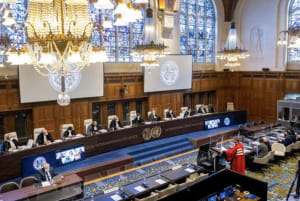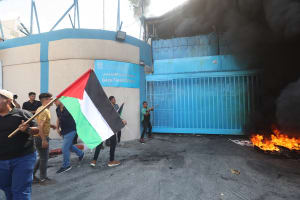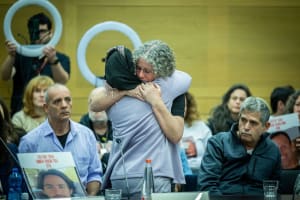Are secular Israelis becoming more religious since Oct. 7?

It was just a few months ago that Israel’s streets and highways were filled with everyday citizens protesting against the present government, its extreme ultra-Orthodox coalition and its attempt to force their religious beliefs on everyone by changing existing laws.
Most everyone saw through what they were doing, and that was the reason they rebelled against it. No one wanted what they were selling, especially because so much of it felt contrived, disingenuous and coerced.
Then Oct. 7 happened, causing the daily protests to be put on pause while everyone tried to digest the horrors of all that had occurred to the innocent citizens whose homes were within striking distance of savage butchers who perpetrated acts that still defy the human conscience.
How does anyone cope with that type of brutal reality? It is not unusual for people to turn their attentions toward the Almighty whom, they may have kept at a distance but, nonetheless, recognize is the only one able to bring comfort and solace at an otherwise inconsolable time.
That is, perhaps, why several journalists have been wondering out loud if the tragic events of Oct. 7 are responsible for having brought secular Israelis, who have traditionally rejected today’s rabbinic Orthodox version of Judaism, as a lifestyle that appeals to them.
Among those speculating about this phenomenon was the new interim Editor-in-Chief of The Jerusalem Post Zvika Klein who wrote: “During a broadcast on national television several weeks ago, members of Kibbutz Be’eri, where more than 130 people were killed on Oct. 7, were singing Jewish songs such as Am Israel Chai (the Nation of Israel Lives) and Shir La’Maalot (Song of Ascents) from the Psalms, normally not the songs they would be singing spontaneously. Although I haven’t seen data to prove this assumption, many Israelis appear to have become somewhat more traditional than before...Many Jewish communities have reported that for the first time, a significant number of Israeli expats have asked to participate in services or Jewish activities.”
He is not alone in his observations. Rabbi Tuly Weisz in his article entitled, “Antisemitism’s wake-up call," also says that, “Since Oct. 7, we have started to see the genesis of a religious revival in Israel. Secular IDF soldiers are asking for and wearing tzitzit (ritual fringe garment) for the first time in their lives, and restaurants in Tel Aviv are making their kitchens kosher. Israelis are coming together in unprecedented unity while repenting and turning to God with great faith in a way we have never experienced in all 75 years of statehood.”
So, what do these signs indicate? Does it mean that secular Israelis are now looking at the expression of rabbinic Judaism as a faith they would like to adopt and incorporate into their daily lives?
While there may be some who are making those considerations, it’s important to differentiate between an honest and genuine search for meaning, comfort, and a higher power than ourselves, and between a sudden attraction towards a religious way of life which bases most every action on rules, limitations and obligatory deeds which are not biblical but rather self-imposed by sages and rabbis who redefined the faith centuries ago.
There is no question that Israelis have been confronted by forces that demand a revisiting of such concepts as morality vs. immorality, good vs. evil and how to survive the onslaught of hatred, which is not limited to our surrounding neighbors but has now spread worldwide.
Those heavy doses of our present situation cannot be ignored. They must be analyzed, considered and remedied, but how? Because it is at these exact moments that we find ourselves helpless, vulnerable and unable to provide answers for the dark evil that surrounds us, making us feel handicapped and insufficient.
This brings us to the obvious and necessary quest for a greater power, who most of us have heard about but not necessarily discovered on a personal level. And that is what is happening to Israelis.
In the midst of their custom to “go it alone” as a people and as a nation, they see that no other country stands completely with us. Yes, there are friends and individuals, but even when heads of governments pledge their support, they are immediately undermined by many in their own parties who threaten to pull their allegiance if they continue to stand with Israel and the Jewish people. We have seen this to be true of America and much of Europe, and this only serves to push us closer to the Almighty and the promises He made throughout the scriptures as it concerns the land which He gave to the Jewish people.
This is the God for whom Israelis are searching – the One who said, “At that time, declares the Lord, ‘I will be the God of all the families of Israel, and they shall be My people. I have loved you with an everlasting love; Therefore, I have drawn you with lovingkindness.” Jeremiah 31: 1-3.
It is that love relationship that God has for His people, not based on rules or being found worthy enough, because we can never attain a satisfactory level to meet God’s standards. We failed long ago when we chose to go our own way. But just as a loving parent, He never gives up on us, and this is the hope that still remains – the possibility of returning to our Maker in a way that is refreshing, healing and restorative, because we are a very scarred and broken people right about now.
At a time when anguish and cries are being expressed by all, the way we dress, what we eat and how Judaism tells us we must pray are not the means by which we will find peace and sanctuary for our troubled souls.
That only comes through a deep and genuine encounter with the One who created us, and this is what must be found by the people of Israel, because it is the only thing that will help to bring us back from the ravages of Oct. 7.
Without God at the helm of our country, we are nothing more than a lost tribe, wandering in the wilderness of our own accomplishments which can only take us so far. But that is a long way off from our intended destiny which was to be a light to the nations and a praise in all the earth (Isaiah 62:7).
There is light at the end of the tunnel of Oct. 7, but it starts with a heartfelt acknowledgment that we have come to the end of ourselves and need to return to our God who is ready to reach out and grab hold of us in the midst of all our pain.

A former Jerusalem elementary and middle-school principal and the granddaughter of European Jews who arrived in the US before the Holocaust. Making Aliyah in 1993, she is retired and now lives in the center of the country with her husband.





